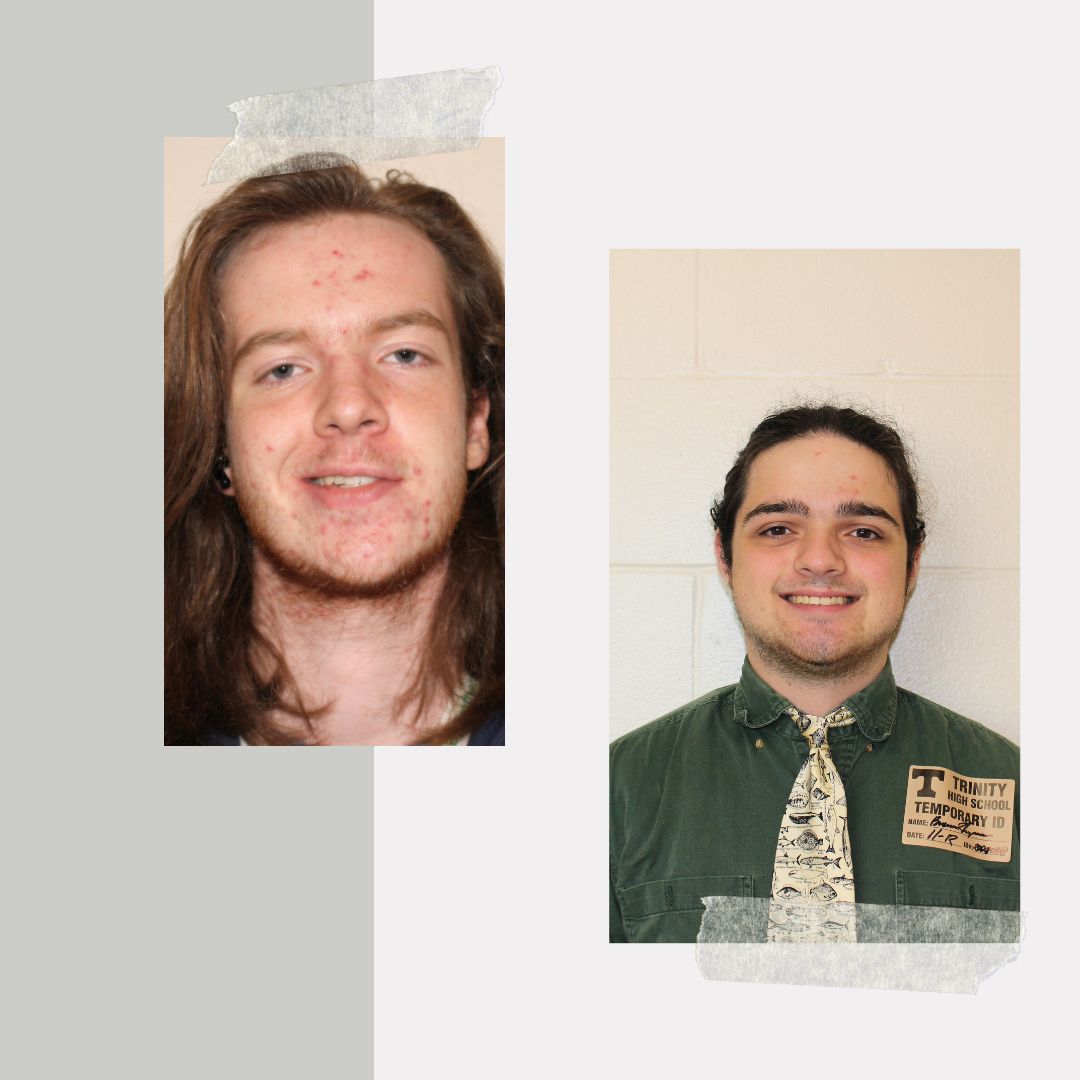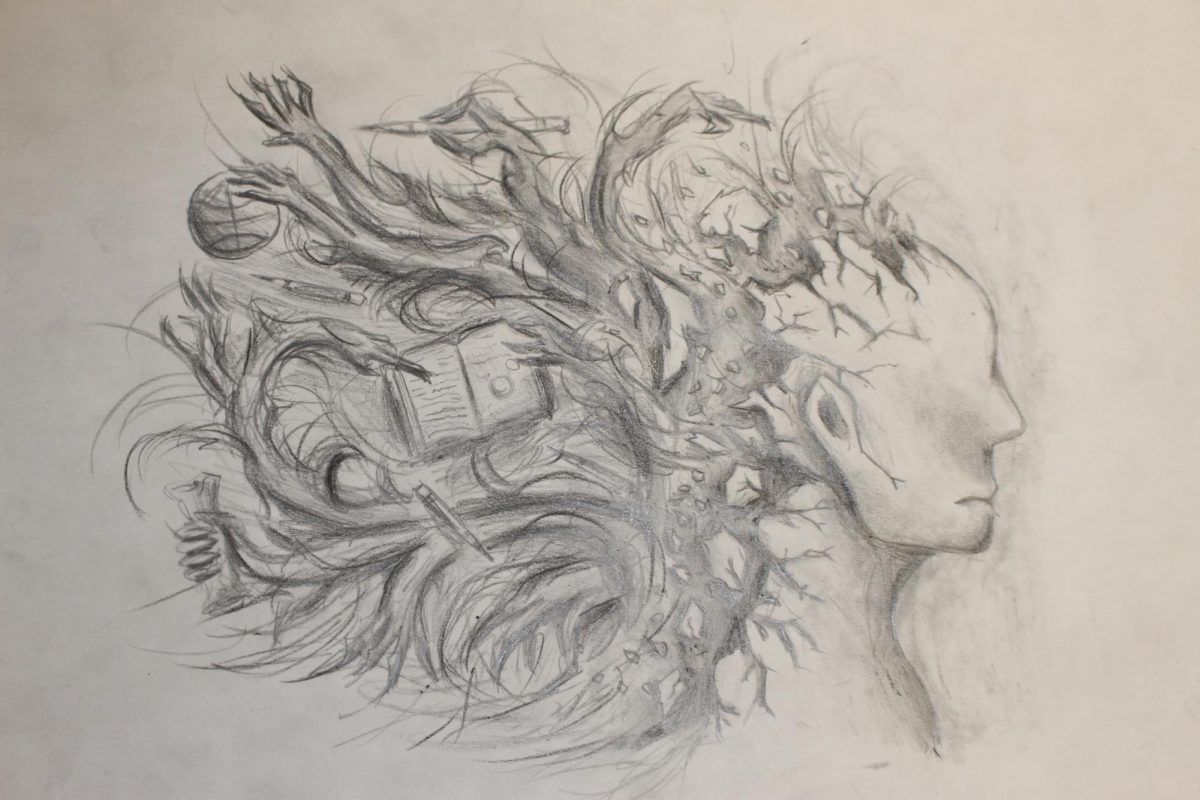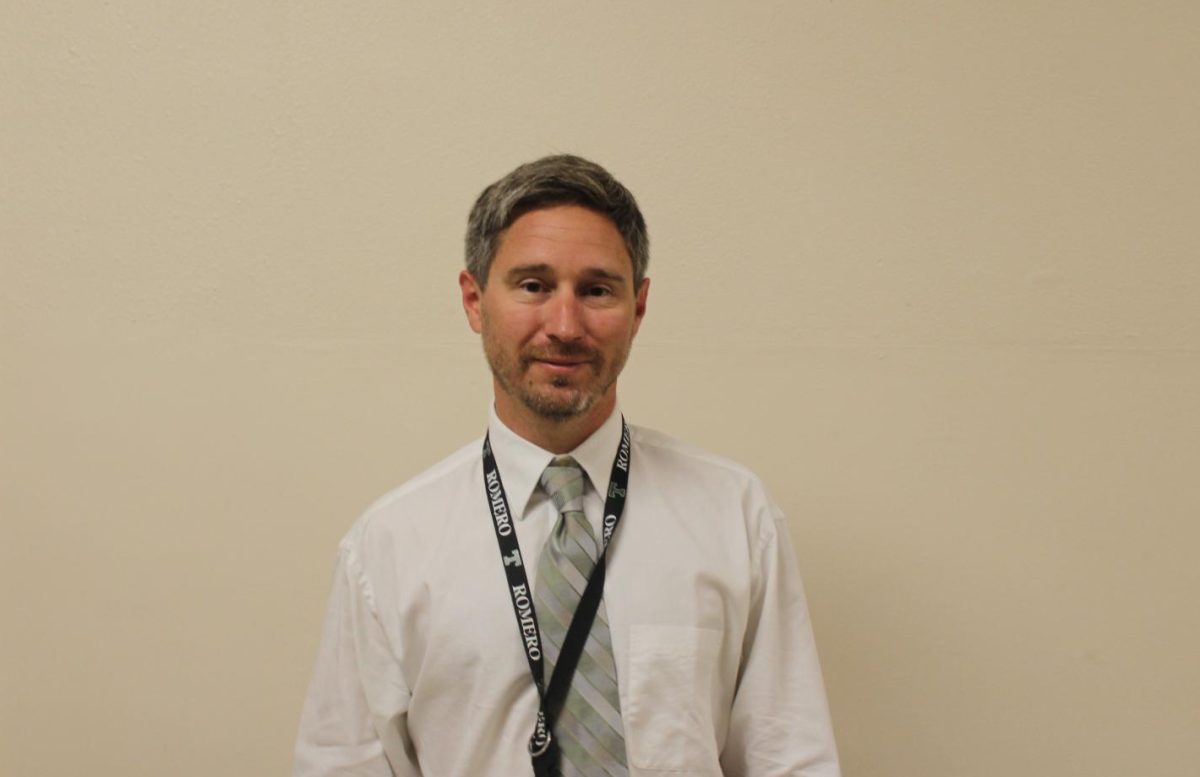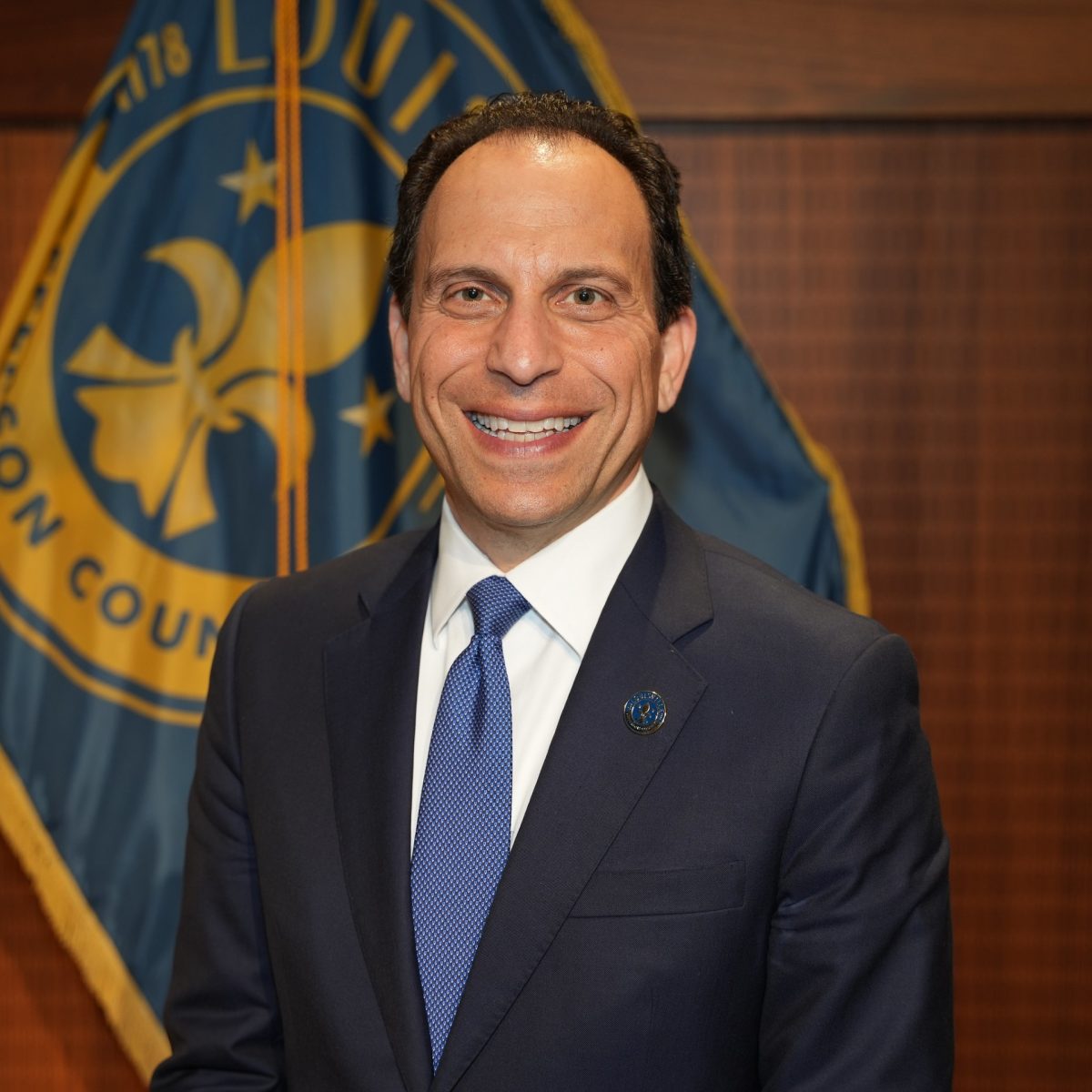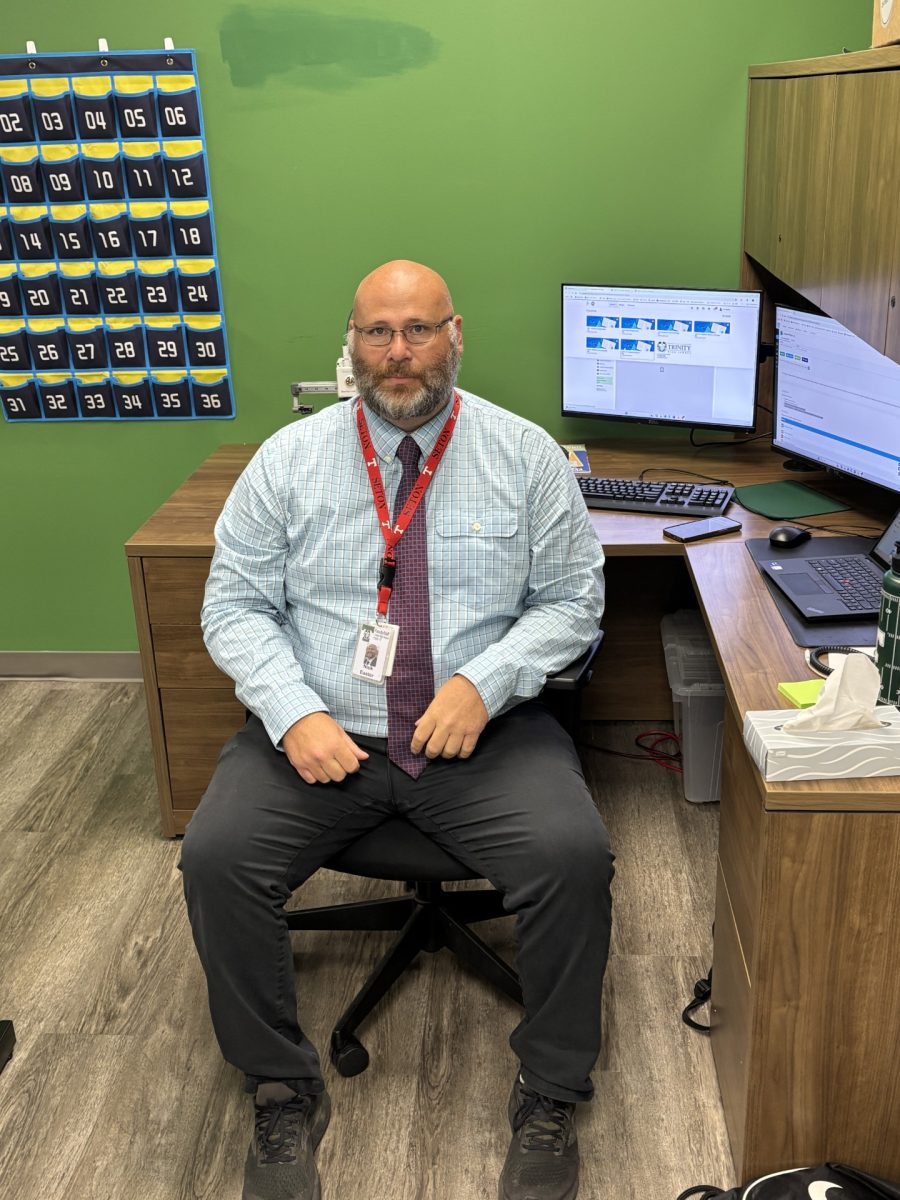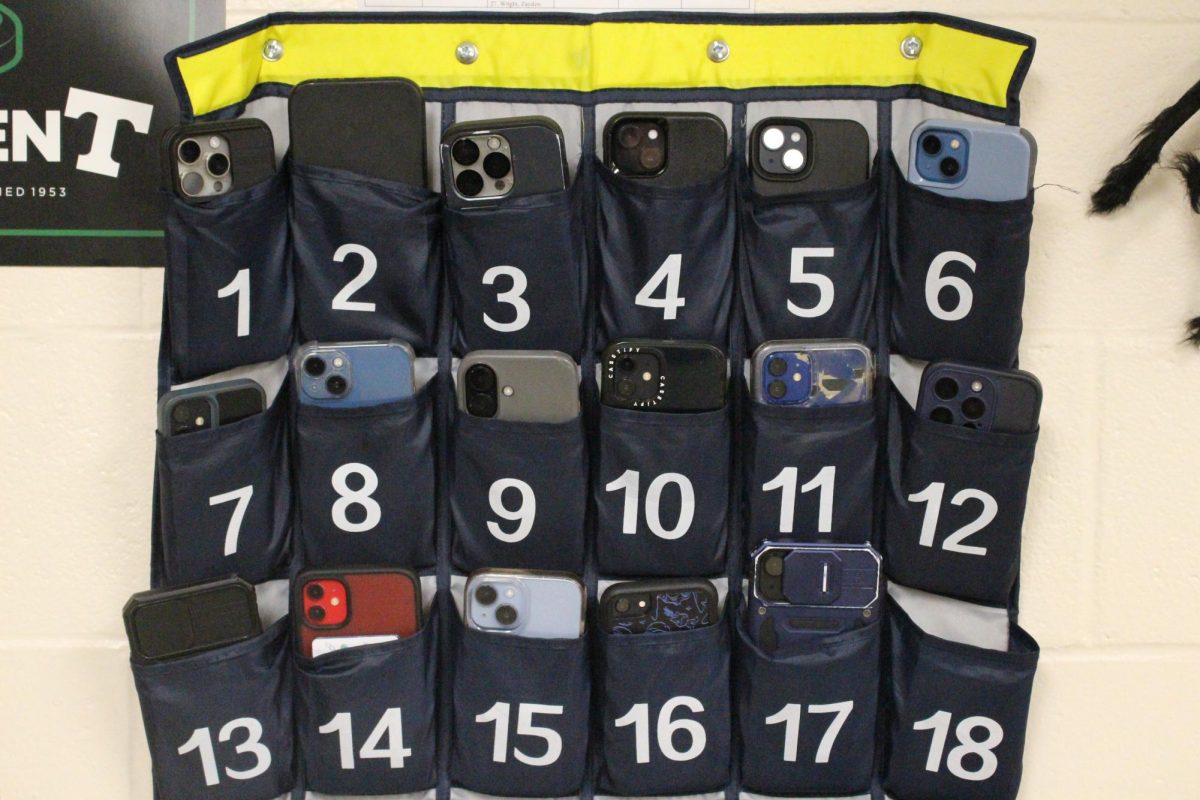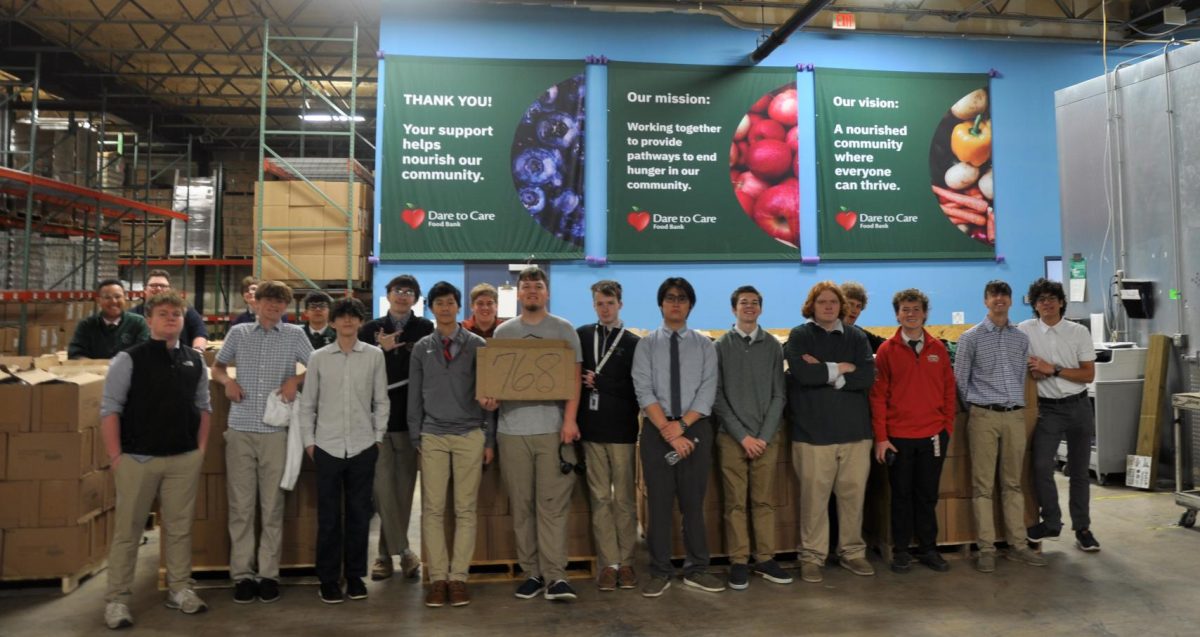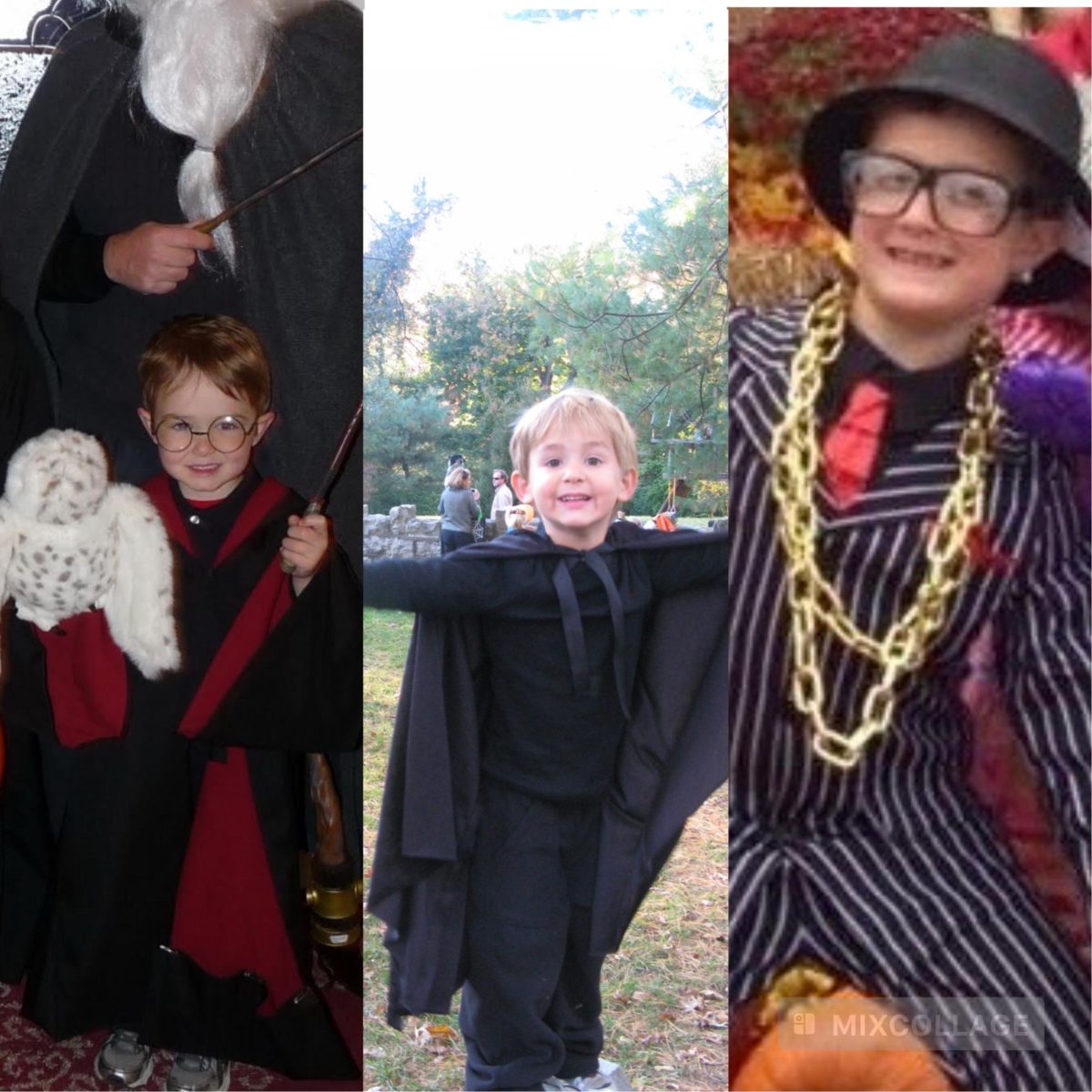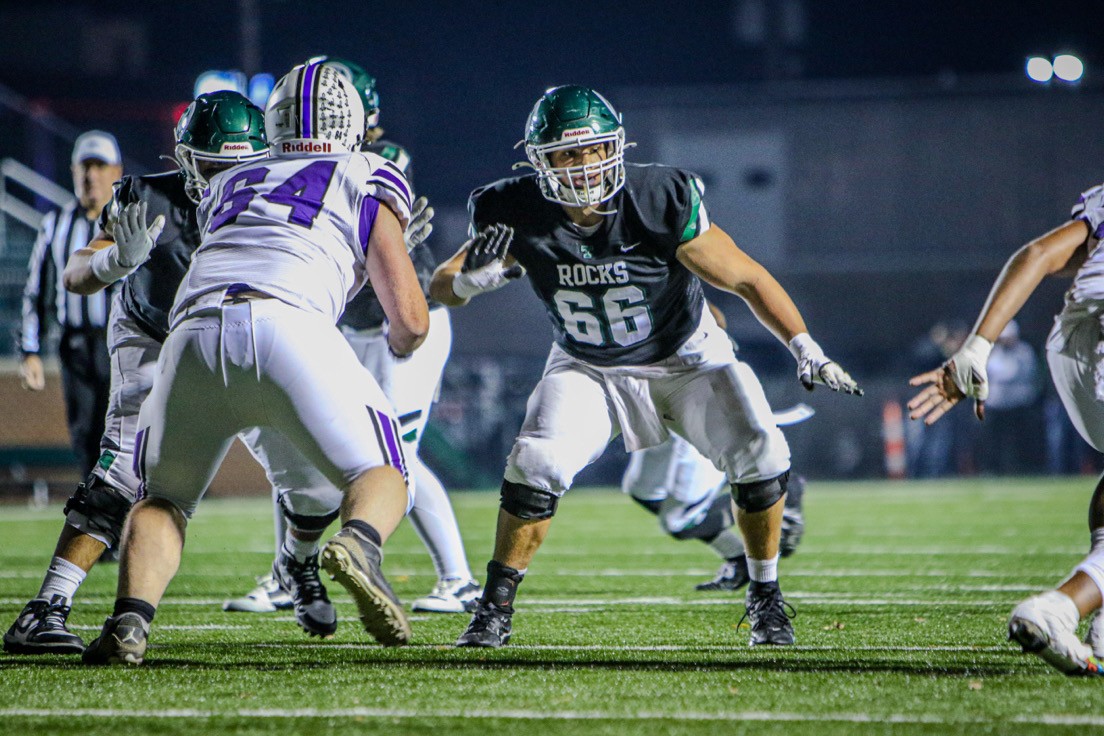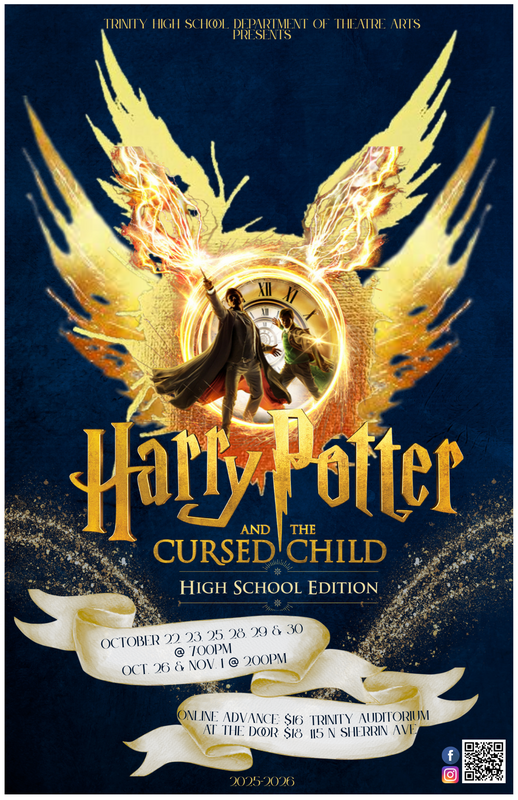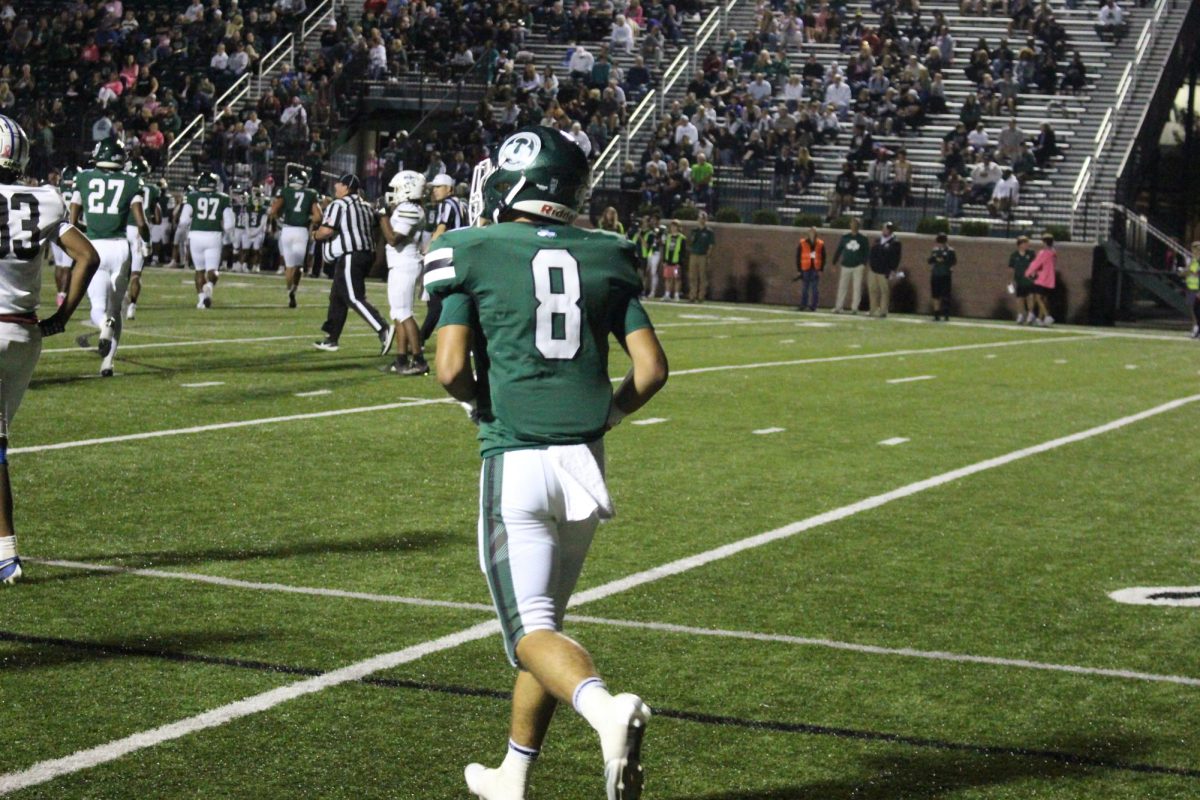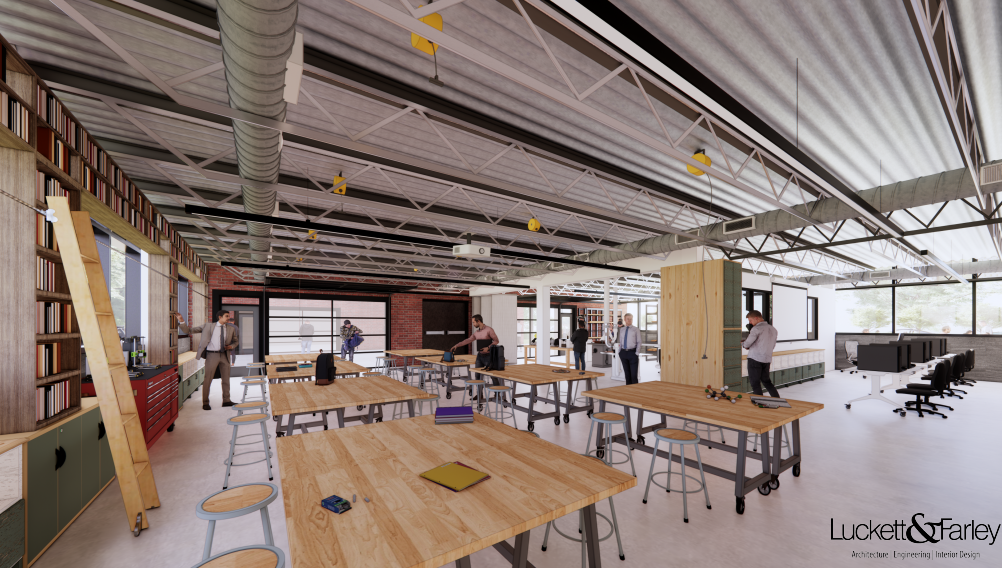This past October, Trinity High School’s theater department had their performance of “Dracula” that ran from Oct. 23 to Nov. 2. One element of theatre that often gets overlooked is the technical crew. The technicians make sure the stage is aesthetically pleasing, the show runs smoothly, and take care of every every technical element in between. The technical elements present in “Dracula” were nothing short of breathtaking.
Two seniors who work with Trinity DOTA’s tech crew sat down for a Q&A to shed light on the massive tasks and their individual roles.
Drew Moore, Senior Stage Manager
Drew Moore is one of the senior stage managers at Trinity’s department of theater arts. He makes sure that everyone and everything is where it needs to be for the show to run smoothly.

ECHO: Drew, what exactly do you do here?
Moore: That’s a really good question because some days I don’t even know. I am involved in the production on stage and the building of the sets, hanging lights, I really work on the stuff backstage.
How long have you been a technician at Trinity?
Moore: I’ve been a technician on all of the mainstage shows since I’ve been here, so that would be seven shows.
With seven shows under your belt what would you say keeps you coming back to the theater department?
Moore: One of the things that keeps me coming back is I enjoy the environment here. I like learning new things about the stuff that we’re doing. I love working with saws and mechanical stuff and building things and that’s one of the big draws here.
You said you’re one of the stage managers. What would you say is the most challenging part of your job at the theater department?
Moore: The most challenging part is probably making sure we make our cues on time and making sure everything is where it needs to be. The most important part is that everything is in place and everything goes seamlessly so that the audience can get the show that they deserve.
Walk me through the process of getting your cues and making sure you have those down for a show.
Moore: As a stage manager, I and a few other people have created a master cue sheet, which is just a giant folder full of the script and in the script we have tiny little post-it notes that say where people need to be, if this is a warning (like they need to be here now), and when we are triggering things. So, that way we can be listening for cues. Everyone knows exactly where they need to be and when they need to go. It can be pretty challenging, especially at the beginning of tech week when you have no idea what needs to be going on. But as you go through the run it gets easier over time because you get used to everything.
You mentioned tech week, walk me through that, how does it feel for you guys?
Moore: It can be challenging. At the beginning of tech week we basically get told, “Hey guys, here’s a list of things that you have to do.” And you have six days to memorize it all, so it can definitely be challenging. It is stressful because you have to make your script, write down your cues, you gotta have a notebook to take notes with. And you have to be able to change your cues on the fly. It can be stressful but at the end of the week, when you get everything done, it’s basically muscle memory at that point.
What would you say is the least challenging thing that you’ve had to do as a technician here?
Moore: My favorite thing to do is build sets, because all you do is you get handed an instruction notebook, and it says “cut these things”, “put them this way” and it’s kind of just mindless. You get instructions and you build what the instructions say, and I just enjoy doing that.
Final question, is there anything you think people should know, that I should include in my story?
Moore: I think people who are interested in building things or just constructing things out of wood, should come here because there is nothing else like it at Trinity. There is no shop class, there’s no trade class, this is the best you’re going to get I think.
Brennan Thompson, Art & Design
Brennan Thompson is the student behind much of the art painted on the stage as well as the initial design of the set itself. He and Mr. J.C. Reedy were the lead designers of the set of “Dracula”.

ECHO: Let’s start simple, What do you do?
Thompson: I do a lot, I paint a lot. I designed half of this show. I run stuff on and offstage and I did a lot of the painting.
The show is very big on technical elements this year, what are some of the technical elements of the show that you have contributed to? I know you said you painted, tell me a little bit about that.
Thompson: The process was sitting in Mr. JC’s garage drawing for about two hours and then we decided on something we liked. And then we would draw that up in a way that would give the technicians measurements and they would build that and I would paint on it.
How long have you been a technician here at Trinity?
Thompson: Two years, this is my second year.
Why would you say you came back to it after your first year?
Thompson: It was a lot of fun the first year.
Of the show, what would be the most challenging part technically speaking?
Thompson: That’s a good question, figuring out how much wainscot material we needed was very hard and ripping all of it was hard. All the detail work, all the itty-bitty bits of detail work that brought the show together. That was hard.
You mentioned you went to Mr. JC’s garage and you sketched out the show, walk me through the process of that.
Thompson: Well before we started drawing we had the classes of him teaching me elements of stage design. How to manipulate a director to accept what you are giving them. The process would be we would have a conversation about what it is we kind of wanted to shoot for, what we wanted to see out of our drawings, then both of us would kind of shut up and draw. We would compare our drawings, we would decide what we liked, what we didn’t like, what we should improve and yeah.
Okay, I asked you about the most challenging part of the show, what about the least challenging part?
Thompson: The least challenging part was putting paint on the walls.
What got you into painting?
Thompson: Both of my grandmothers are painters so it’s in the blood, and what got me into painting was looking at my grandmother’s work, she painted with watercolors, so that stuck, and my uncle, he painted oils that’s why I paint oils.
Is there anything else you think people should know [about the show]?
Thompson: I did a lot of designing, but most of it was JC, everywhere there are pieces of things that I did like the windows on the second level, those were my idea and JC drew those. The colors on the wall were him, but the wainscot was modeled after my drawings and the first floor right wall is mine but most of it is JC.
Congratulations to the technicians, cast, and crew of “Dracula”!

